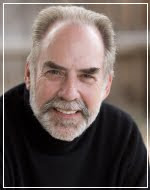
I often chide the Unitarian Universalists in regard to "seeking truth" being an inane vision for a congregation. But sometimes, a dose of one person's truth may be a good thing. Or maybe not. Here's some possible truth to ponder.
"The future of American liberal religion is one characterized by a posture of exile, where we no longer can expect that the larger culture cares what we are saying or doing."
Christopher H. Evans, from his new book, Liberalism Without Illusion: Renewing an American Christian Tradition

Seeking truth is a cerebral, fundamentally Greek way of imagining the life of the religious community. We who are the spiritual and intellectual descendants of the Greeks should consider balancing that with the way ancient Hebrews imagined life together in religious community, namely, as doing good (justice, mercy, compassion) in response to the demonstrated steadfast love of God for Israel. Or as the 8th-century BCE Hebrew prophet Micah put it, practicing justice, loving mercy and walking humbly with God.
ReplyDeleteInane? A harsh judgment on what is most certainly _a_, though not _the_, purpose of a religious community.
ReplyDeleteEvans' book sounds interesting. I wonder if "exile" is another way of thinking of what Niebuhr identified as the appropriate relationship between the church and the culture in which it dwells, that is to say, one of tension. I certainly don't want liberal religion to be comfortable in this culture, or for this culture to be comfortable with us; our job is to transform it.
I am trying to come up with a set of Scriptural passages that might warrant the claim that "seeking truth" is what being in religious community is all about. Who'll help me out here?
ReplyDeleteWas it in the 1970s or 1980s that we saw bumperstickers proclaiming I NEVER LOST IT in response to CampusCrusadeForChrist's bumper sticker I FOUND IT ? The search for rather than the proclamation of truth led Davidson Loehr to call the seven principles the seven inanities or the seven dwarfs--perhaps quoting others.
ReplyDeleteRe: "The future of American liberal religion is one characterized by a posture of exile..."
ReplyDeleteLiberal Christian theologians Stanley Hauerwas and William Willimon were heading in this same basic direction in their 1989 book Resident Aliens: Life in the Christian colony: A provocative Christian assessment of of culture and ministry for people who know something is wrong. Hauerwas and Willimon's book blew my mind when I first read it in 1998, for I realized that all of us who come from the liberal Protestant tradition in the U.S. need to stop acting as if we still ran the U.S. (as liberal Protestants did from its founding until c. 1968).
Also of interest, along these same lines, is Harvey Cox's latest book, The Future of Faith. Cox argues that the age of belief is over, that people don't care much any more about the ontotheological debates that have dominated that past few centuries -- and it is out of those ontotheological debates that the "search for truth" comes. Cox further argues that the Global South now dominates the world-wide religious dialogue and those of us in the Global North and the West need to pay attention to the fact that the familiar religious debates of Western Europe and North America are increasingly irrelevant.
I'd argue that much of liberal religion in the U.S., esp. liberal Christian and liberal post Christian religion, is stuck in in a conversation that people under 50 don't much care about. Paying close attention to sermon titles is one symptom of this state of being stuck in the past.
Thanks for these posts, Mike.